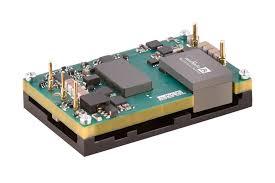DC to DC Converter: Types And Its Advantages

A DC to DC converter is a power electronics device which accepts a DC input voltage & also provides the DC output voltage. The output voltage of the DC/DC converter could be greater than the input voltage or vice versa. Here the converter output voltages are used for matching the power supply required to the loads. The connection & disconnection of the power supply to the load can then be controlled using a switch in the simple DC to DC converter circuit. A DC/DC converter circuit consists of a transistor or a diode switch, energy storage devices such as inductors or capacitors. These converters are generally used as switched-mode regulators or as linear voltage regulators. A DC to DC converter is used for providing DC regulated power supply and constant DC power supply to the electrical & electronics project circuits.
Read on to see the DC to DC converter types and the advantages of a DC to DC converter
DC/DC Converter Types
Non-Inductive DC/DC Converters
To power the low-powered loads, it is useful to use converters that are based on switching capacitors. Using these converters doesn’t require the expensive wire-wrap components; this enables you to develop affordable and compact power supply units. Such converters can have both the fixed and the adjustable voltage.
Inductive DC/DC Converters
Converters that are without the galvanic isolation between input & output are widely popular. This converter features a single isolated power supply. On the basis of the position of key the voltage can be increased, decreased or inverted in order to reverse polarity voltage. Here the key components are often insulated gate bipolar transistors and field-effect transistors of various types.
Galvanic-ally Isolated DC/DC Converters
The galvanic ally isolated DC to DC converters use pulse transformers with multiple coils; this allows you to eliminate communication between input & output circuits. Also, these converters feature a big voltage difference between the input & output voltages.
Advantages of a DC-DC converter
Below are the most significant advantages of DC to DC converter:
- This converter provides the technique to extend potential from partly reduced cell potential.
- DC/DC converter is available as the whole hybrid circuit element. Also, it requires very few additional components.
- DC to DC choppers is used for regulating the voltage.
- This converter is constructed to make the best usage of energy yield for photo-voltaic systems.
- Isolated DC to DC converter has more energy transformer on condition of the barrier.
- The output of an isolated DC/DC converter is organized as positive or as negative.
Post Your Ad Here
Comments